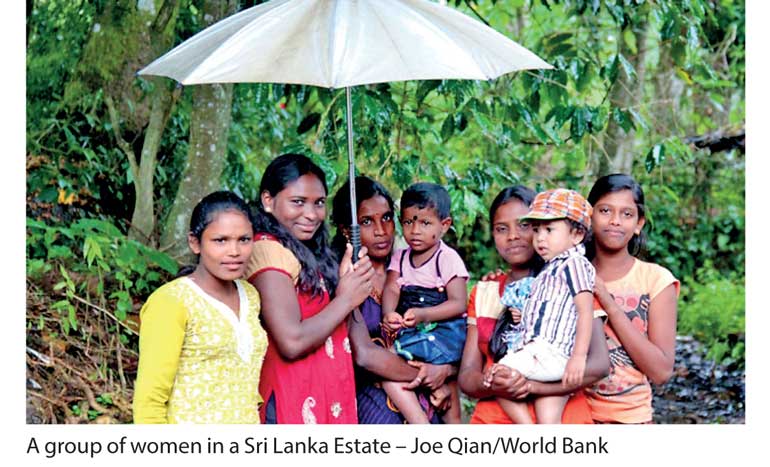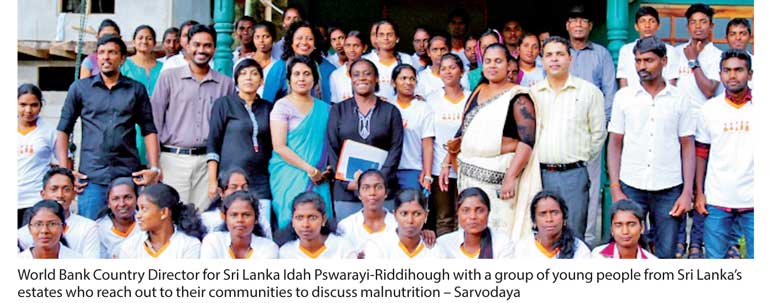Thursday Feb 26, 2026
Thursday Feb 26, 2026
Monday, 17 April 2017 00:00 - - {{hitsCtrl.values.hits}}
 By Idah Z. Pswarayi-Riddihough
By Idah Z. Pswarayi-Riddihough
Happy New Year to all our Sri Lankan friends and colleagues celebrating the Sinhala and Tamil New Year this month; and Happy Easter to those celebrating it.
This is my first opportunity to celebrate these various holidays in my adopted country. I love the energy, the buzz of excitement everywhere and the decorations coming up in many of the commercial districts. I have been asking so many questions about the importance of the New Year holiday; and at the same time enjoying the preparations for the festivities, the anticipation of the big day as well as the serious messages.
I have learnt that the Sinhala and Tamil New Year, also known as ‘Aluth Avurudda’ (in Sinhala) and ‘Puthandu’ (in Tamil) is very important to all Sri Lankans and it celebrates the traditional Lunar New Year. It is celebrated by most Sri Lankans – a point of unity and a joyful occasion.
Even more importantly the holiday coincides with the New Year celebrations of many traditional calendars of South and South East Asia – a regional point of unity! Above all, this is also known as the month of prosperity.
So what does the holiday mean to you as a Sri Lankan, or maybe you are someone like me who may not be Sri Lankan but loves the country and its people?
At the World Bank Group, promoting shared prosperity and increasing the incomes of the poorest 40% of people in every country we work in is part of our mission. The first goal is to end extreme poverty or reduce the share of the global population that lives in extreme poverty to 3% by 2030.
A recent poverty assessment carried out by the World Bank found that poverty rates have improved significantly across Sri Lanka in the last decade. It also identified that residents of the estate sector are still among the poorest in the country. The poverty head count (the proportion of a population that exists, or lives, below the ‘poverty line’) in the estate sector is 21% while urban and rural poverty are 8.1 and 4.6% respectively. If Sri Lanka is to prosper as a country, no one should be left behind.
Poverty is not only about the amount of money you earn, for some it is about the amount of food they have access to! The World Bank recently carried out a multisector nutrition assessment in Sri Lanka’s estate sector.
Below are some key findings of this report:
Last month, I visited Hatton and interacted with a dynamic group of young people from the estates under a partnership initiative with Sarvodaya. This project was a pilot innovation to see if we could find joint solutions to the malnutrition issue with the community, using the study findings as a base. In a period of less than a month, this group of young animators from the estates learnt how to use technology to effectively reach the community to discuss malnutrition, a tough subject matter to address with people they know intimately. They used the opportunity to also advocate for changes in behaviours, such as prioritising giving children and pregnant mothers a balanced diet; access to clean water through in-home treatment such as boiling; promoting home gardens, amongst others. They reached schools, homes and neighbourhoods, engaged plantations’ management and communities.
You are welcome to learn more, engage and encourage these young people by visiting their Facebook page. This initiative was made possible with support from a multi-donor trust fund known as the South Asia Food and Nutrition Security Initiative (SAFANSI).
I emphasised two key messages with the youths; it’s important that they see themselves as champions for poverty reduction and better nutrition in their homes and neighbourhoods; and that through education they can help eliminate poverty – including nutrition poverty. As we celebrate this New Year let’s take a moment to acknowledge our blessings while also sparing a moment to think of the less fortunate. It is after all the year to eradicate poverty. What will you do make it happen? (Source: http://blogs.worldbank.org/endpovertyinsouthasia/happy-new-year-time-celebrate-many-things-and-think)
(The writer is the Country Director of the World Bank for Sri Lanka)